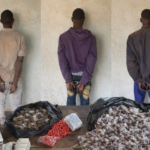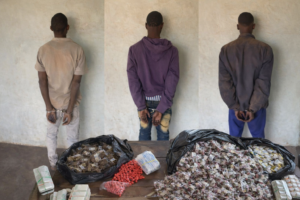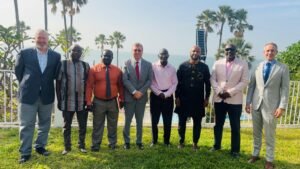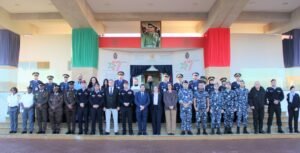In a race against time, the Gambia Horse and Donkey Trust has stepped in to secure life-saving rabies treatment for a child who was bitten by a dog suspected of carrying the deadly virus.
The incident came to light when Langbaba Ceesay, a native of Kudang, animal rights advocate, and manager of the Trust, received a distress call from a concerned father seeking urgent advice after his child suffered a dog bite.
The child was rushed to Bansang Hospital, only for the family to discover that the critical post-exposure rabies vaccine was unavailable. With no time to waste, the Gambia Horse and Donkey Trust took swift action, arranging transportation for the child and his father to the capital—a grueling 270-kilometer journey.
Upon arrival, the desperate search for the vaccine led them to multiple hospitals, each turning them away. It wasn’t until late at night that they finally located the vaccine at a pharmacy. By 1:30 a.m., the child received the first of the six required doses, giving hope for a full recovery.
The vaccine, priced at £34 per dose, was funded by the Sambel Kunda village clinic, a sister charity, as many families in The Gambia cannot afford such costly medical care.
This harrowing experience underscores the severe challenges faced by Gambians, particularly those in poverty, in accessing essential healthcare. While the child’s life may now be out of immediate danger, the incident raises urgent questions about the availability of critical vaccines in the country’s healthcare system.
The Gambia Horse and Donkey Trust, known for its work in animal welfare, has once again proven its commitment to saving lives—this time, not just of animals, but of vulnerable children in need.
Gambia Horse and Donkey Trust saves child’s life, provides urgent rabies vaccine after dog bite
In a race against time, the Gambia Horse and Donkey Trust has stepped in to secure life-saving rabies treatment for a child who was bitten by a dog suspected of carrying the deadly virus.
The incident came to light when Langbaba Ceesay, a native of Kudang, animal rights advocate, and manager of the Trust, received a distress call from a concerned father seeking urgent advice after his child suffered a dog bite.
The child was rushed to Bansang Hospital, only for the family to discover that the critical post-exposure rabies vaccine was unavailable. With no time to waste, the Gambia Horse and Donkey Trust took swift action, arranging transportation for the child and his father to the capital—a grueling 270-kilometer journey.
Upon arrival, the desperate search for the vaccine led them to multiple hospitals, each turning them away. It wasn’t until late at night that they finally located the vaccine at a pharmacy. By 1:30 a.m., the child received the first of the six required doses, giving hope for a full recovery.
The vaccine, priced at £34 per dose, was funded by the Sambel Kunda village clinic, a sister charity, as many families in The Gambia cannot afford such costly medical care.
This harrowing experience underscores the severe challenges faced by Gambians, particularly those in poverty, in accessing essential healthcare. While the child’s life may now be out of immediate danger, the incident raises urgent questions about the availability of critical vaccines in the country’s healthcare system.
The Gambia Horse and Donkey Trust, known for its work in animal welfare, has once again proven its commitment to saving lives—this time, not just of animals, but of vulnerable children in need.











More Stories
U.S. boosts malaria fight in Gambia with $3.88m lifesaving support
Barrow Administration Boosts Dairy Sector with Importation of High-Milk-Producing Cattle
Gambian Migrant Alleges Forced Deportation from Germany Despite Serious Health Issues